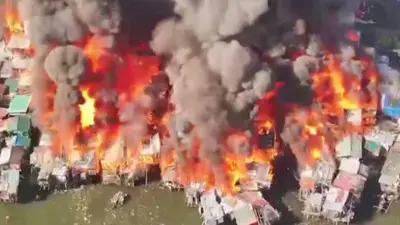We've updated our Privacy and Cookies Policy
We've made some important changes to our Privacy and Cookies Policy and we want you to know what this means for you and your data.
Hinkley cost overruns a warning for future projects
Image source, Reuters
- Author, Simon Jack
- Role, Business editor
As recently as July, EDF assured the ҙуПуҙ«ГҪ that Hinkley Point C was proceeding on budget and on schedule.
I'm told that today's announcement that costs could overrun by up to ВЈ2.9bn was as a result of a review conducted after the "big concrete pour".
It seems that despite the assurances that lessons had been learnt at Flamanville, in France, and Olkiluoto, in Finland, (both of which have overrun by many years and many billions), it is almost impossible to be accurate about cost and timescale when it comes to nuclear power.
To be clear, these cost overruns will not hit UK consumers. One of the reasons the price agreed for the electricity it will one day produce was so high (ВЈ92.50 per megawatt hour at a time when the wholesale market price was around ВЈ40) was that EDF agreed to absorb any budget-busting delays.
However, a new way of paying for further nuclear stations, such as Sizewell, is being considered. Under this new model (Regulated Asset Base), consumers would see costs of construction added to their bills as the project went along. This is a way of reducing the cost as you don't have to raise all the finance up front. However, it means that customers could be exposed to cost overruns.
Government's big call
That is why today's announcement is important and why EDF will find it harder to make the argument for building Sizewell.
That argument is already getting tougher as the price of zero carbon offshore wind continues to plummet. The last auction saw prices below ВЈ40 per megawatt hour - the lowest estimate for the Sizewell energy price I've heard is ВЈ60.
EDF correctly points out that renewables are intermittent - the wind doesn't always blow and the sun doesn't always shine. But we are moving towards a future in which electricity storage issues are being addressed - eg, using electric cars to double as home batteries, using renewable to creates hydrogen which can be stored and burned with only water as a by product.
We will need a lot of electricity in the future as we decarbonise transport and heating - and nuclear may well have a role in producing low carbon energy at scale.
But with technology moving fast, making a 40-year bet on another nuclear station with a history of cost and schedule overruns, coupled with a funding model that exposes consumers to those overruns, is a big call for any government to make.
Top Stories
More to explore
Most read
Content is not available








